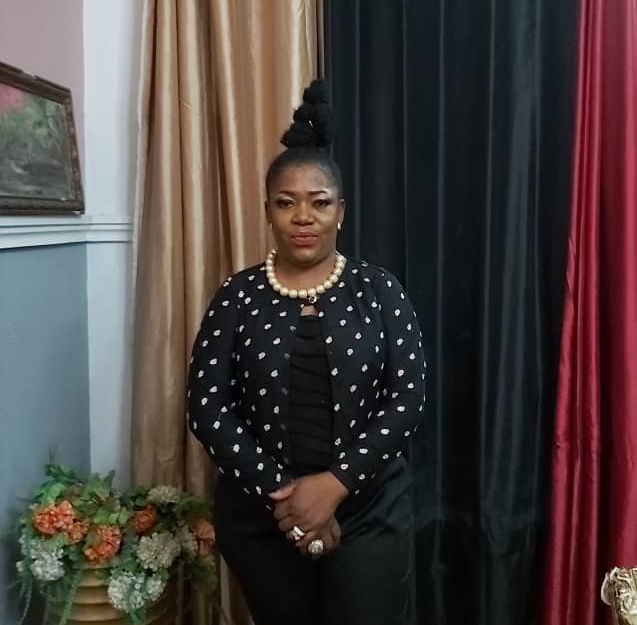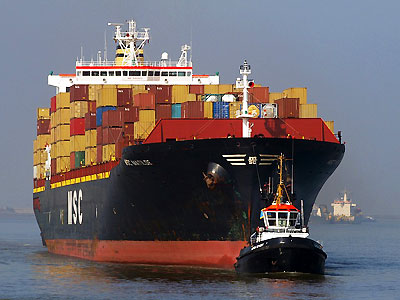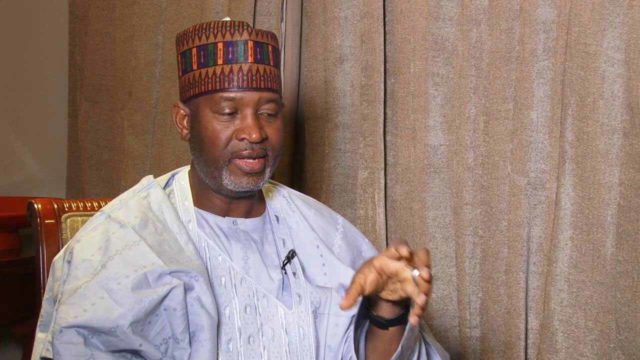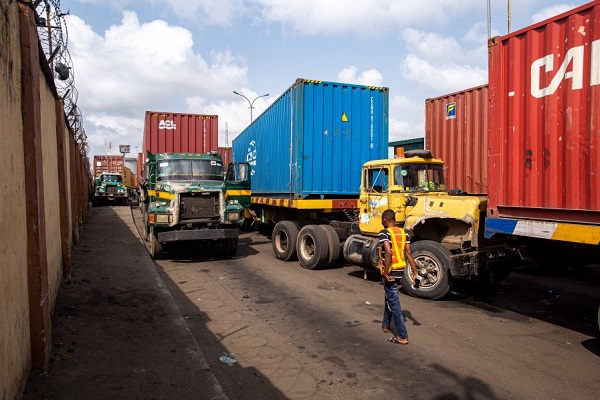NEWS LENS
Ribadu Catches the Bug
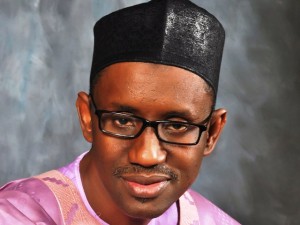
In a rather shocking move, former chairman of the Economic and Financial Crimes Commission, Malam Nuhu Ribadu, last week defected to the Peoples Democratic Party, thus altering the already fluid political scenario in the All Progressives Congress in Adamawa State, writes Ojo M. Maduekwe
Since last year’s defection by the governors of Rivers, Kano, Sokoto, Kwara and Adamawa States, along with some members of the House of Representative and senators from their states, the gale of defection between the ruling Peoples Democratic Party (PDP) and the opposition All Progressives Congress (APC) has become a tool of propaganda in the hands of both parties, especially to discredit each other.
Since last year’s defection by the governors of Rivers, Kano, Sokoto, Kwara and Adamawa States, along with some members of the House of Representative and senators from their states, the gale of defection between the ruling Peoples Democratic Party (PDP) and the opposition All Progressives Congress (APC) has become a tool of propaganda in the hands of both parties, especially to discredit each other.
While politicians who left the PDP said the party lacked internal democracy, those who left APC described it as a party controlled by a few individuals and lacking also internal democracy.
A former Minister of Aviation, Femi Fani-Kayode took it a notch further by alleging the APC was “sponsoring and sympathetic” to the Boko Haram sect.
The mass exodus of politicians from the PDP to the APC was feared by many as marking the death of the ruling party as well as the birth of a promising opposition. Lately, the APC has watched its political fortunes dwindle with PDP’s gubernatorial victory in Ekiti State and the impeachment of one of its members, former Adamawa State governor, Murtala Nyako.
When 37 House of Representative Members from Kano, Sokoto, Rivers, Kwara and Katsina States defected from the PDP to the APC, more were expected to follow even as several Senators were rumoured as next in line. But they never defected. The excitement of boasting the majority in both chambers of the legislature was extinguished as quickly as it was ignited.
That period was described by political analysts as the season of defection. Many politicians caught the bug and it was predicted that more would later be infected with the “political virus” as the country inches closer to the 2015 elections.
Another politician who recently caught the defection bug is the former Chairman of the Economic and Financial Crimes Commission (EFCC), Malam Nuhu Ribadu.
Ribadu is not the first and probably won’t be the last politician to defect from the APC to the PDP. While many before him freely moved from one party to another, his first ever defection is being questioned on the basis of public perception of him as a “man of integrity”.
After Nyako was impeached as governor, and the council chairmen in the 21 local government areas of the state, councillors and development area administrators defected to the PDP, pressures began to mount on Ribadu to leave the APC and contest the governorship position on the PDP platform.
After Nyako was impeached as governor, and the council chairmen in the 21 local government areas of the state, councillors and development area administrators defected to the PDP, pressures began to mount on Ribadu to leave the APC and contest the governorship position on the PDP platform.
While the public waited on Ribadu to take the critical step, the governor of Kano State, Rabiu Kwankwaso, in a bid to dissuade him from leaving the APC as well as calm his supporters said Ribadu was better off in the opposition because an attempt to join the ruling party was going to be a political miscalculation.
“Ribadu is widely known as a man of integrity and I can remember that when he was the chairman of EFCC, he did his job very well. My advice to him is not to join the PDP because at the end, he will be the biggest loser… If he joins their party, which I believe he cannot make that mistake, but if he joins them, that means all what we are talking about him is wrong.
The governor’s reason was because “Most of those in the PDP were indicted for corruption by him and now they want him to join them; I believe at the end, they will also begin to haunt him.”
According to Kwankwaso, “it will be a big political mistake. It will be better for him to remain in the All Progressives Congress (APC) because people see him as a man of his word, not someone who is going to be desperate for power.”
But there is a second opinion which reasoned that if Ribadu were to join a political party based on whether some of its members were indicted for corruption by the EFCC during the time he was the Commission’s chairman, he probably would not have been a member of the APC in the first instance.
Like the PDP, there are politicians in the APC who Ribadu’s EFCC indicted for corruption. Although a few of the PDP governors who later switched camp were believed to have been victims of political witch-hunt, it does not however change the fact that they had issues with the EFCC.
Former Kwara State governor, Senator Bukola Saraki, a member of the APC, who defected from the PDP was allegedly indicted by the EFCC under Ribadu. First his family was accused of mishandling funds belonging to the Societe Generale Bank of Nigeria (SGBN).
In 2003 when the older Saraki was chairman of SGBN, the bank was investigated by the National Drug Law Enforcement Agency (NDLEA) for alleged money laundering.
Under Ribadu, the SGBN was investigated by the EFCC. Later as Kwara governor, the younger Saraki was alleged to have pilfered funds of the state local government areas even though none of such allegations were proven and established against him.
Before the 2007 elections, EFCC had compiled a corruption advisory list to political parties, but that list was later alleged to have been doctored to shield some governors who were reportedly in the good books of then President Olusegun Obasanjo and the PDP. Saraki was said to have been on the original list but went missing on the alternate version.
Then Chairman of the Nigeria Governors’ Forum (NGF), Saraki’s family was described in the Wikileaks cable as “well-established in Kwara and Western Kogi State… Saraki’s family is also involved in some questionably illicit deals, and reportedly also had a hand in choosing current EFCC Chairwoman, Farida Waziri, as a way to protect his father from EFCC inquiry.”
Saraki, along with the jailed former Delta State governor, James Ibori, were reported to have led a campaign for Ribadu’s removal as EFCC Chairman, paving the way for Waziri, who was appointed by the late President Umaru Yar’Adua.
Aside Saraki, one of the founding fathers of the APC and former Lagos State governor, Bola Tinubu, also had scores to settle with the EFCC and other anti-graft agencies, both during his tenure as governor and outside of office.
Tinubu was among the 15 former governors invited by Ribadu’s EFCC at the end of their tenure in 2007. Others were Ibori, Orji Kalu of Abia State, Chimaroke Nnamani of Enugu State, Peter Odili of Rivers State, Lucky Igbinedon of Edo State, Joshua Dariye of Plateau State, Ahmed Sanni Yerima of Zamfara State, Jolly Nyame of Taraba State, Boni Haruna of Adamawa State, George Akume of Benue State, Attahiru Bafarawa of Sokoto State, Adamu Mu’azu of Bauchi State (now the PDP National Chairman) and Victor Attah of Akwa Ibom State.
There was also the case of former Vice-president Atiku Abubakar. Although he was later cleared by the courts for any wrongdoing and his persecution viewed by many as politically instigated by his then principal, Obasanjo, Atiku was in 2006 indicted on corruption charges by the EFCC under Ribadu as Chairman.
Saraki and Tinubu, having made EFCC’s list of corrupt politicians, it turned out that Ribadu was at liberty to choose to contest for the Adamawa State governorship by-election either on the platform of the PDP or the APC, without being morally blackmailed into remaining in the APC.
A former presidential candidate of the Action Congress of Nigeria (ACN), which became part of the APC, Ribadu is said to see no future in the APC. In 2011, when he contested against President Jonathan, he was ACN’s beautiful bride but, all that changed when his party leadership was alleged to have made a deal with Jonathan, who swept all the South-west states during the election, except Osun. His future in the APC took another plunge last year, when ‘powerful’ PDP members defected to the APC.
In recent calculations on who would likely be APC’s presidential standard bearer, Ribadu’s name has never been mentioned which translates to his being side-lined by the APC for next year’s presidential election. With the presence of politicians like Buhari, Atiku and Saraki in the race, there’s no chance that Ribadu would be Nigeria’s president if he remains in the APC.
But now that Ribadu has made the switch to PDP, there are reports that if he wins the Adamawa governorship on the ruling party, the experience would serve as a preparation ground for his ambition to become Nigeria’s president by 2019, when President Jonathan’s supporters expect the president to have finished serving his second term and at which time the presidency would have shifted back to the North.
Ribadu, it appears, did not only catch the defection bug, but now has a renewed hope of being Nigeria’s president.


